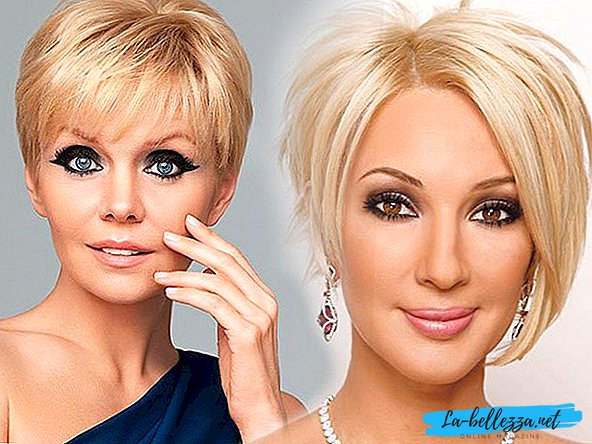
Sudden weight loss in your beloved pet is always a concern. And not in vain, because weight loss in cats is usually a symptom of a underlying or concomitant disease. And do not ignore it.
The cat lost weight with a normal or increased appetite
If your cat is losing weight, but continues to eat, this may be due to the impaired ability of the pet's body to absorb nutrients from food.
Here are a few reasons why cats that eat can still lose weight:
· Worms. Significant infection with parasites leads to a decrease in the intake of nutrients in the cat's body, because helminths appropriate all that is useful. It’s easy to get infected. If your cat is completely domestic and does not go outside, this does not protect her at all. Helminth eggs can withstand both low and high temperatures outside for a long time, and then get into the house on the sole of shoes or on the wool of other pets.
· Diabetes. This disease is more common in older cats, but can be observed in fairly young cats. Recognizing diabetes at an early stage is easy: your cat loses weight quickly, while her appetite remains the same, and sometimes it increases greatly. The pet begins to drink a lot and often urinate.
· Hyperthyroidism - increased activity of the thyroid gland in combination with an increased metabolic rate. The cat eats more to satisfy the increased caloric needs of the body, but this is still not enough and the weight begins to decrease.
· Diseases of the internal organs - This is a general explanation of why a cat can lose weight. In many cases, other symptoms are present: vomiting, diarrhea, blood in the urine and feces.
· Other medical problems. The most common reasons for a cat to lose weight but continue to eat normally or excessively are described above. However, besides them, there are many more. But diagnosing a cat is the job of a veterinarian.
The cat lost weight and stopped eating
Cats starving for even a few days run the risk of liver dysfunction. Therefore, systematic nutrition is very important. The most common causes of lack of appetite and weight loss are:
· Dental problemssuch as a broken tooth, gingivitis, and oral cancer. This can lead to weight loss, mainly because they cause the cat a feeling of discomfort or pain while eating, the cat tries to avoid inconvenience and stops eating.
· Gastrointestinal problems can cause nausea and vomiting in a cat, lack of appetite and, as a result, weight loss.
· Infectious diseases often accompanied by loss of appetite.
· Other medical problems. In any case, keep in mind that there are many diseases that can lead to the fact that the cat refuses food, so a visit to the veterinarian is recommended.
· Introduction to the diet of a new product may cause your cat to lose weight. You can’t change the pet’s diet dramatically, you need to introduce any product gradually and make sure that the new food satisfies your cat.
· Stress conditions negatively affect appetite and weight fluctuations. Different events can cause stress: visits to the veterinarian, moving, the appearance of a new family member, conflicts with other cats, etc. It is important to identify the source of discomfort and the negative effects to a minimum.
· Food stands close to the tray. Cats tend to relieve themselves as far away as possible from their bowl of food, because in the wild their smell would scare away their prey. This instinct is so strong that if you inadvertently put a bowl near the tray, the cat may refuse to eat.
The cat has lost weight and is losing hair
There are various reasons why your cat may have problems with weight and coat.
· Hyperthyroidismas described above, this is an increased activity of the thyroid gland in combination with an increased metabolic rate. The cat eats more to satisfy the increased caloric needs of the body, but this is still not enough and the weight begins to decrease. In addition to these symptoms, cat owners often notice active hair loss in shreds.
· Cancer and diseases of the cardiovascular system can greatly affect the body of the pet: the cat loses weight and loses its beautiful coat.
· Poor nutrition and allergies. An unbalanced diet can not cope with the task of replenishing the body's supply of nutrients. This can cause weight and coat loss. Also, these symptoms may indicate a food allergy.
· Fleas and dermatological diseases. Parasite damage and various dermatitis cause hair loss and stress for the body, which can affect appetite and weight fluctuations.
The cat has lost weight and is suffering from vomiting.
Most cats sometimes suffer from vomiting due to dietary intolerance and gastrointestinal infections. But vomiting, which persists for more than 2 weeks and is accompanied by weight loss, is a clear indicator of health problems.
· Neoplasms in the digestive tract. Cats are susceptible to various types of cancer, especially lymphoma and sarcoma, which develop in different organs of the body. The appearance and growth of a tumor can cause your cat to lose weight rapidly.
· Inflammatory bowel disease often causes severe bouts of vomiting. Unfortunately, for cats this is a common problem.
· Infection with parasites. Round and tapeworms attach to the walls of the intestines, causing irritation and vomiting. In addition, most of the nutrients entering the cat's body are selected.
· Feline Immunodeficiency Virus. This is a viral infection that weakens the cat’s immune system and causes symptoms such as vomiting or weight loss. Pets are also susceptible to secondary bacterial infections due to poor functioning of the immune system.
Rapid fluctuations in the weight of your cat adversely affect her health. At the slightest change in the health of the pet - you must consult a veterinarian.











